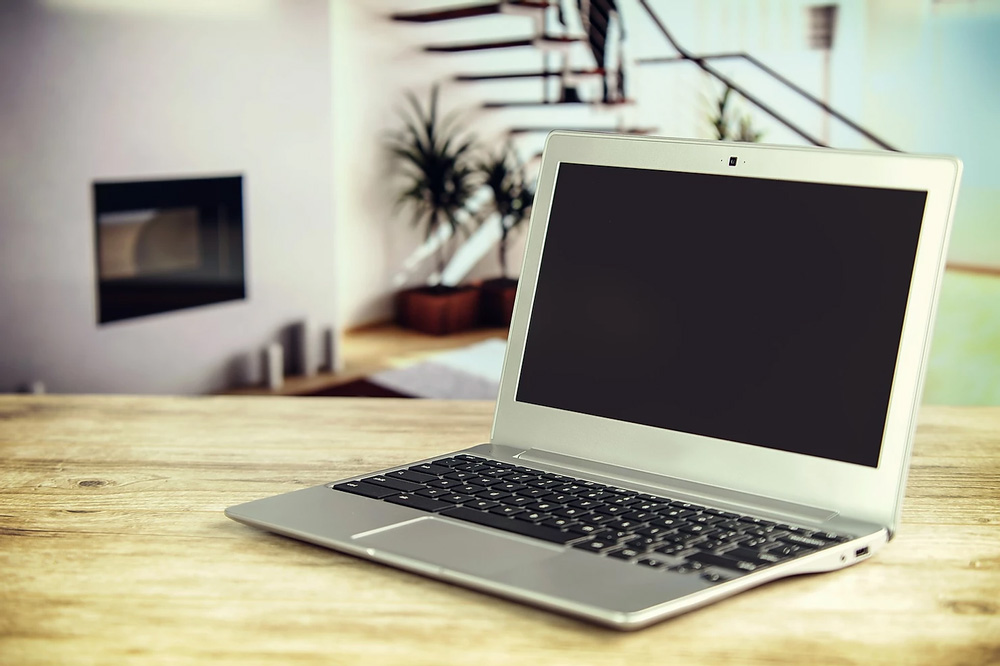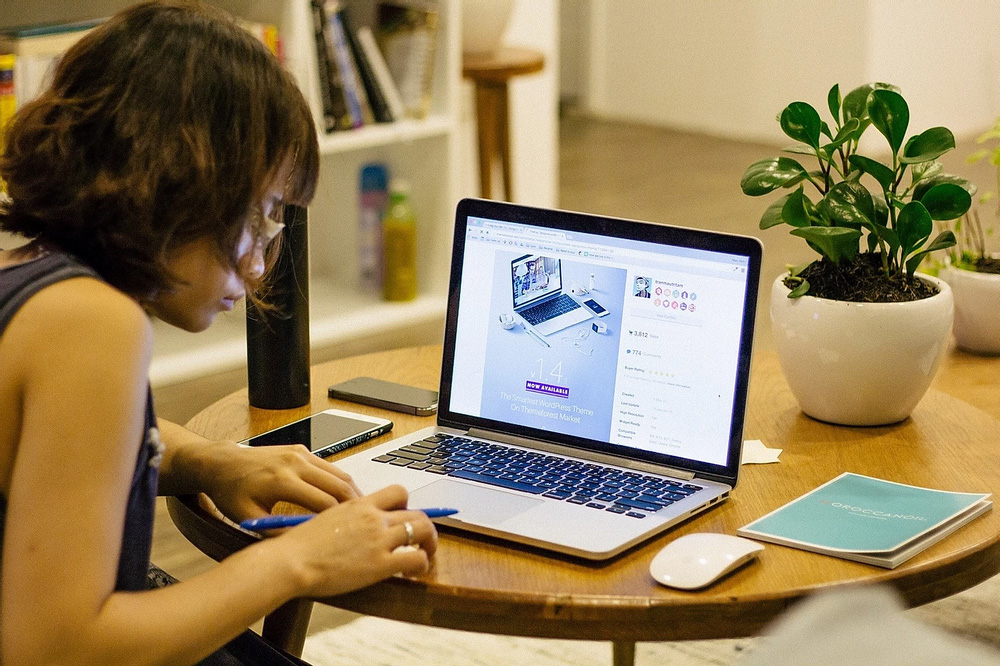During this pandemic, the global spread of COVID-19 is keeping people at home in an effort to reduce the risk of infection. Some employers therefore encourage or compel their employees to work from home for an indefinite period.
If you find yourself in this situation, you’ll have to adapt to new challenges to work effectively. Indeed, you’ll probably have to face many challenges such as preventing yourself from being distracted by children or domestic tasks. In addition, you’ll need to determine when to work, where to work, and how to create boundaries between your work and personal life.

Here are 12 tips to help you be more productive and efficient:
1. Create a morning routine
Start early. Don’t let morning lethargy rob you of your motivation. Get energized upon waking up and don’t fall in the trap of postponing breakfast.
When you were still going to the office, your morning commute probably helped you wake up and feel ready to start your tasks as soon as you got to your desk. From home, however, you don’t have this wake-up time and the transition from your bed to your computer can be harder.
You need to create a new morning routine that will help you start every day on the right foot. If you are athletic, for example, consider doing an hour of exercise or jogging before you start working. This may also be after walking your dog or drinking your second cup of coffee. Everyone must adapt their own routine according to their needs.
Generally, the best way to work from home productively is to immerse yourself in your to-do list as soon as you wake up. Just starting a project in the morning can be the key to effectively progressing throughout the day.
However, if you’re having trouble finding a work schedule that’s right for you, start with solitary tasks in the morning. Plan for phone calls, virtual meetings, and other collaborative work when you feel more alert and awake.
2. Pretend you’re going to the office
The mental association you make between your work and your desk can make you more productive, so you shouldn’t lose that feeling when you work from home.
It is important to dress in nice clothes or comfortable clothes. Wearing pyjama pants at work is an advantage for some, but a very bad idea for many others.
As if you were at your workplace, prepare your office workstation, bring your cup of coffee or bottle of water, open your computer and the software you will need, etc.
3. Choose a dedicated office space.
Just because you unexpectedly started working from home because of COVID-19 doesn’t mean you can’t have a well-defined office space. Try to maintain a well-designated separation between the hobbies’ space (the bedroom and living room, for example) and the work space.
If you already have 2 computers, that’s great, you can use one for work exclusively and keep the second one for personal use. However, if you don’t have that luxury, make sure areas are defined.
For example, when you’re at your desk and your laptop is connected to the monitor and the external keyboard, it’s time for work. When you’re on your couch with the computer on your lap, it’s time for leisure.
To help you work more efficiently, don’t hesitate to ask your employer to provide you with a laptop and/or peripherals such as a monitor, keyboard, mouse, headset with microphone, etc.
If you work on your personal computer, you can divide your hard drive and create a separate user account for work. Or at a minimum, configure your internet browser with several accounts with different toolbars, one for personal use and one for work.
4. Determine your tasks in advance
The best performing remote employees have a reputation for being extremely disciplined and organized. Try to plan your schedule the day before to make it more official when you wake up the next day to start. That way, you won’t waste time in the morning looking for something to work on, and you’ll be more effective. In addition, you’ll be less tempted to change your schedule during the day.
However, if you need to, you can change some items on your calendar, but it is important that every task is described in your calendar before you begin working.
5. Organize your days
You have to be focused and well organized to do any full-time office work in an unconventional space.
When you work from home, you are your own manager. Establish a daily calendar including all your tasks, telephone meetings, videoconferences, etc. and stick to it. Having clear guidelines on when to work and what to do will help you maintain a regular schedule and avoid losing focus or getting exhausted.
Feel free to use online calendars, like Google Calendar, which you can share with your colleagues and your employer.

6. Establish ground rules with other people in your home
Make sure everyone in the house respects your space during your working hours. This can be difficult, especially if you have young children at home or have multiple pets, and everyone is asking for your attention throughout the day.
It can sometimes be difficult to make people around you and especially your children understand that you are at home, but that you are not available for them. But you must set specific working hours and communicate them clearly to your family.
It’s important that everyone in your family understands that this is your working time and that as if you were at your desk, you must meet specific working hours for which you are paid.
In addition, the less you will be disturbed the more productive you’ll be.
7. Work when you are at maximum productivity
Everyone has productivity peaks throughout the day. Your motivation and concentration fluctuate naturally during the day.
When working from home, however, it’s even more important that you know when these periods will take place in order to effectively plan your schedule.
To take advantage of your most productive periods, plan to do your most difficult tasks when you know you’ll be on top. Use the least productive times of the day to eliminate easier tasks that don’t require a lot of effort or those that are more monotonous. Save the puzzles for more productive periods.
8. Ban all social media
It’s easy to access all your social media accounts when working from your personal computer.
However, to be more productive and stay focused on your work, you should remove the shortcuts from all of your social networks from your browser and log out of each account. If you have created a separate user account for work, cut access to your social media accounts.
In addition, try to leave your cell phone in another room. You’ll be less tempted to get distracted by notifications. It is also a guarantee that you will not be tempted to take too many social breaks during the day.
9. Use technology to stay connected
Don’t hesitate to use current technological tools to connect with your colleagues or your management. You can schedule meetings and moments of discussion on your various projects or tasks, whether via instant messaging or videoconference. This way, you won’t get the feeling of isolation that you might feel when you suddenly find yourself working from your home.
10. Use music to work effectively
Take advantage of this time to listen to your favourite music when you can. Please note that we are talking about music that will allow you to better focus on your tasks and not those songs that will make you dream and distract you!
Try to match your music to the task at hand. At work, the best playlists are those of various music, you can listen to music that matches the energy of the project you are working on. For example, video game soundtracks (music without words) are great for helping you focus on your work.
11. Take breaks
Just because you work from home doesn’t mean that you don’t have the right to take breaks throughout the day.
A lunch hour and two 15-minute breaks per day seem to be the norm for the majority of full-time employees. So allow yourself enough time during the day to get away from the computer screen. Use your breaks to get away from your desk and spend time with other people in the house.
12. End your day with a ritual
Just like you should start your day with a routine, create a routine that signals the end of your workday. You can simply set an alarm at a specific time or log out of your professional messaging, plan to go out to walk your dog or watch your favourite TV show. No matter what you decide to do, do it regularly to mark the end of your work hours.
When you are in the office, seeing your colleagues leave tells you that your workday is over too. When you’re working from home, it’s easier to lose track of time because you are focused on your business without outside disturbance.
The whole Lib. team hopes that this article will give readers insight and ideas on how to work effectively from the comfort of their home during the crisis we are going through.
The whole Lib. team hopes that this article will give readers insight and ideas on how to work effectively from the comfort of their home during the crisis we are going through.
